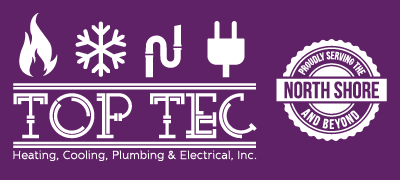
Have you ever performed a double take when you checked your last energy bill? While high energy bills can be the end result of extreme weather events, consistently high bills can also suggest an inefficient HVAC system or your home is wasting energy through other means, like drafty windows or poor insulation.
One of the simplest ways to identify whether your home is wasting energy is by hiring a home service professional to complete a home energy audit, also called a home energy assessment. Keep reading to find out more about home energy audits, including what they are and their benefits.
What Is a Home Energy Audit?
An energy audit is a custom inspection of how much energy your home uses and whether – and where – your home might be losing or wasting energy. An inspector will take a look at older energy bills while completing an energy audit to determine where energy is being used and how much.
The ultimate goal of an energy audit is to help homeowners save money on their energy bills by suggesting energy-efficient renovations, which might include swapping out your existing HVAC system, installing new insulation, plugging up leaks, or replacing loose windows.
While completing the energy assessment, the auditor carries out an inspection of the outside and inside of your home. The auditor will perform a blower door test on doorways, windows and fireplaces to determine if there are air leaks in your home. They’ll also check your home’s HVAC system, as well as the ductwork, the water heater, and the insulation in your attic. Some assessments could also include inspecting your current lighting system.
Benefits of a Home Energy Audit
It can be tough for the average homeowner to know for certain how efficient their home is in comparison to other similar homes in their community. However, many energy companies often offer information about where your home ranks when compared with similar homes and whether it’s more efficient, about average, or inefficient compared to your neighbors’ homes. This is a great starting point to decide if you need an energy audit completed.
A few of the benefits of a home energy audit include:
Understanding How Efficient Your Home Is
It’s worthwhile to understand how efficient your home is and where you’re using up the most energy. For example, if your ducts are leaking air, it will cause a large increase in your energy bills and excessive wear and tear on your HVAC system since it has to run longer to properly heat or cool your home.
Making Energy-Efficient Updates
An energy audit will outline where you need to make energy-efficient upgrades to conserve energy and decrease utility bills. This can include replacing worn-down weatherstripping or installing a new energy-efficient furnace.
Improving Health and Safety
Permitting air to seep into your home through doors and windows, or due to a lack of insulation can cause extra moisture to form, which can negatively influence your home’s humidity levels or produce mold. This can lead to health issues, particularly for people dealing with asthma or allergies.
Raising Your Home’s Retail Value
Energy-efficient homes are desired by homebuyers. You can sell your home much faster or for more money by telling potential buyers that it’s energy efficient.
How to Complete an Energy Audit of Your Home
Although performing an energy audit independently may not be as comprehensive as hiring a professional, it’ll offer a broad sense of how energy efficient your home is. If you don’t find any flaws during the DIY test, then you probably don’t need to hire a professional. Use this step-by-step checklist:
- Inspect your HVAC system. Damaged ducts can lose as much as 20% of conditioned air, leading to higher energy bills and excess wear and tear on HVAC equipment. If you find leaks, use duct tape to seal them. If your HVAC equipment is old and inefficient, upgrading to a new system can save you a substantial amount on your energy bills. In some cases, it might be better to call a reputable HVAC company to inspect your system.
- Look for air leaks. Air leaks on average can increase the energy bills by 10 to 20%. Inside, look for air leaks in areas where you can find a draft, such as along the edge of flooring and along baseboards and electrical outlets. Outside, you can inspect for air leaks in the home’s foundation, siding and mortar. Plug, caulk or seal any air leaks to save money.
- Inspect insulation. If your home is older, it could mean your insulation is too. If you can see the joists, you likely need more insulation.
- Check ventilation. Make sure that all of your kitchen and bathroom exhaust fans are spinning properly, and inspect for evidence of rot or moisture.
Contact TopTec for a Professional Energy Audit
If you are interested in professional help determining how energy efficient your heating and cooling equipment is, call the HVAC pros at TopTec today. We’ve proudly supported the residents of Libertyville with quality home services for years. Contact us today to schedule an appointment.
